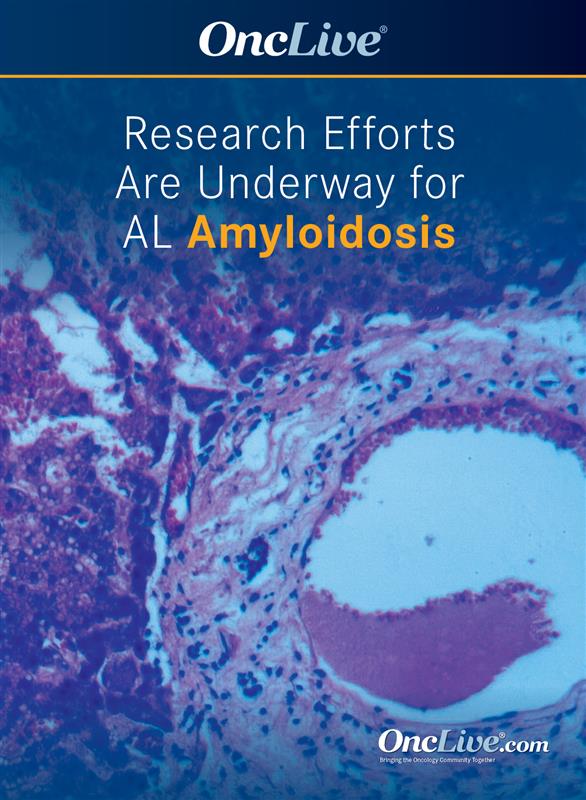Dr Gertz on the Investigation of Birtamimab in Mayo Stage IV AL Amyloidosis
Morie A. Gertz, MD, discusses the rationale for the phase 3 AFFIRM-AL trial in patients with amyloid light chain amyloidosis and elaborates on the challenges that may arise when enrolling patients to this trial.
Morie A. Gertz, MD, chair, General Internal Medicine, Mayo Clinic Comprehensive Cancer Center, discusses the rationale for the phase 3 AFFIRM-AL trial (NCT04973137) in patients with amyloid light chain (AL) amyloidosis and elaborates on the challenges that may arise when enrolling patients to this trial.
Dr Gertz on the Objectives of the AFFIRM-AL Trial
The ongoing AFFIRM-AL trial is evaluating the efficacy and safety of birtamimab in patients with Mayo Stage IV AL amyloidosis. The primary end point of this trial is time to all-cause mortality.
Patients will be randomized 2:1 to receive either intravenous birtamimab at 24 mg/kg or placebo every 28 days. All patients will also receive standard-of-care chemotherapy.
The goal of the AFFIRM-AL trial is to elicit a significant overall survival benefit at 9 months, thus reducing all-cause mortality, Gertz says. Additional study objectives include functional and patient-reported quality of life measures, including six-minute walk test distance and Physical Component Summary score, Gertz notes.
Dr Gertz on Enrollment Challenges for AFFIRM-AL
This multicenter, global trial aims to enroll approximately 150 patients at least 18 years of age with newly diagnosed, treatment-naïve Mayo Stage IV disease with cardiac involvement. One barrier to patient enrollment in AFFIRM-AL is the availability of daratumumab (Darzalex) as a treatment option in this population, Gertz says. AFFIRM-AL is limited to treatment-naïve patients, but if patients are unaware of this trial opportunity, for example, those receiving treatment in a community setting, they may begin daratumumab treatment and thus become ineligible for enrollment in AFFIRM-AL, Gertz explains. Prior to initiating daratumumab treatment, patients with previously untreated Mayo Stage IV AL amyloidosis should be referred to a center participating in AFFIRM-AL so they can potentially enroll in this trial and receive birtamimab, Gertz emphasizes.
Another enrollment barrier is the relatively small patient population that is eligible for AFFIRM-AL, as 23% of the total population of patients with amyloid disease have advanced AL amyloidosis, Gertz notes. Increased awareness of AL amyloidosis has resulted in many patients being diagnosed with this disease at earlier stages, which has further decreased the number of patients who are potentially eligible for this trial, Gertz concludes.
Funding supported by Prothena. Content independently developed by OncLive.




